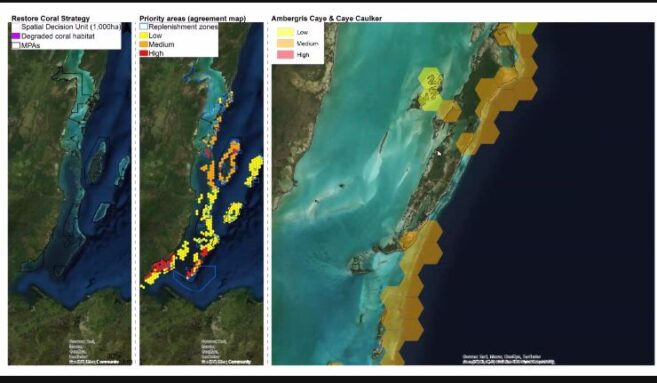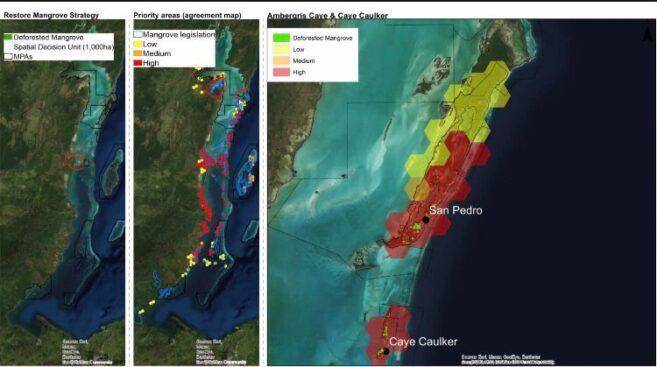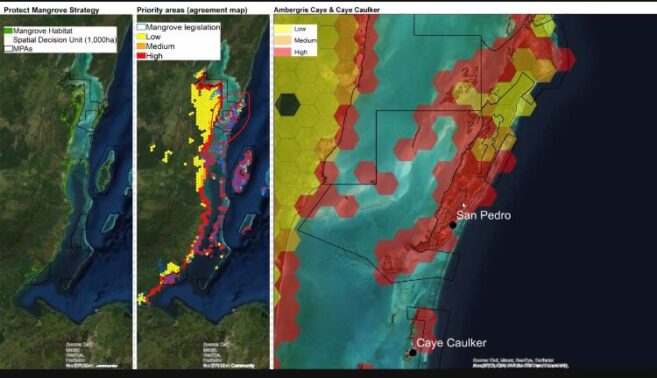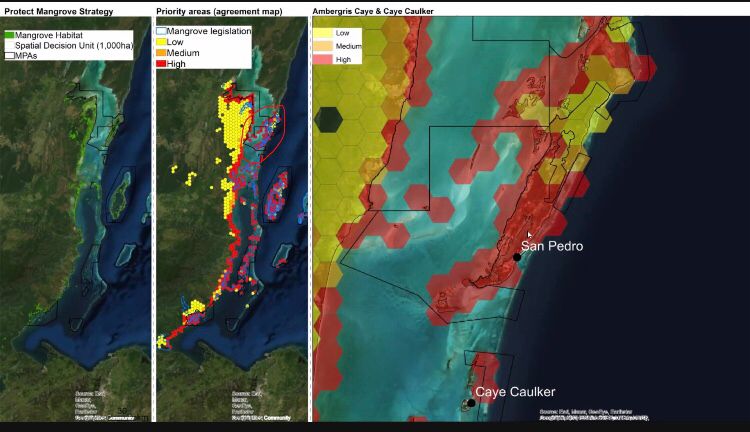Hol Chan Marine Reserve, the Coastal Zone Management Authority and Institute, and the World Wildlife Fund (WWF) recently hosted a virtual workshop on the Smart Coast Project. Many of the participating stakeholders and environmentalists registered their disappointment in the lack of enforcement to protect Belize’s natural resources. The workshop presented modeling results and proposals for adaptation options and management scenarios in the northern communities of Ambergris Caye and Caye Caulker.
The online workshop also spoke of a Resilient Reefs initiative to work with each management site and develop a practical strategy. According to the presenters, the Smart Coasts Project aims to mainstream climate-smart principles into marine protected area management and coastal development policies. This will be implemented across the Mesoamerican Reef region, including Belize, Mexico, Guatemala, and Honduras. In Belize, the project will increase the adaptive capacity of coastal communities dependent on coastal and marine resources and protected areas.
According to Hol Chan, they have been collaborating with WWF on the Smart Coast Project since 2018 by building up the resiliency of vulnerable communities to mitigate the impact of climate change. Hol Chan has been involved in educational campaigns and facilitating workshops with communities and relevant target groups to support the models and adaptation measures. One goal is to manage protected areas and climate change adaptation on Ambergris Caye and Caye Caulker.
Mangrove protection and restoration
A couple of modules shared in the virtual workshop showed where mangrove restoration areas on Caye Caulker and Ambergris Caye are badly needed. The priority areas appeared in bright red, revealing where massive mangrove deforestation has taken place for tourism development. The modules also showed areas near the islands that need reef restoration. Many of the corals in those areas have been damaged and must be restored to save the tourism product that also protects our shorelines.
Stakeholders welcomed the initiative and emphasized the need to protect mangrove areas as these trees significantly support the fishing and tourism industry. They demanded those in charge of making policies to work on enforcement. One participant pointed out that no resources are allocated for enforcement every time these projects are put together. The absence of environmental authorities, such as the Department of Environment, Forest Department, and Fisheries on the islands, was heavily criticized. Enforcement was repeated and demanded throughout the discussion, and organizers linked to the relevant authorities were reminded that this project may not succeed without this crucial component. The group of concerned stakeholders and environmentalists made it clear that they are not against the development of Ambergris Caye and Caye Caulker but emphasized it must be sustainable and the physical presence of authorities is a must.
The Ministry of the Blue Economy was part of the workshop and committed to addressing such issues with the available resources. They are supporting the Smart Coast Project and have identified the central communities that need attention. These include Sarteneja, Copper Bank, Chunox, San Pedro Town, Ambergris Caye, Caye Caulker, Hopkins, and Placencia. The ministry proposed a methodology to hold individual interviews, focus groups, door-to-door visitations, and community meetings.
Organizers thanked those attending the virtual event and promised to take into consideration all recommendations shared. Feedback from the workshop will be provided to the heads of departments and relevant ministries to develop a viable plan and address the issues affecting environmental projects and coastal communities.
The Ministry of the Blue Economy indicated that they would be launching their five-year strategic plan in December of this year. This plan will include consultations with various sectors, including Non-Governmental Organizations, the community, the private sector, and government officials.


